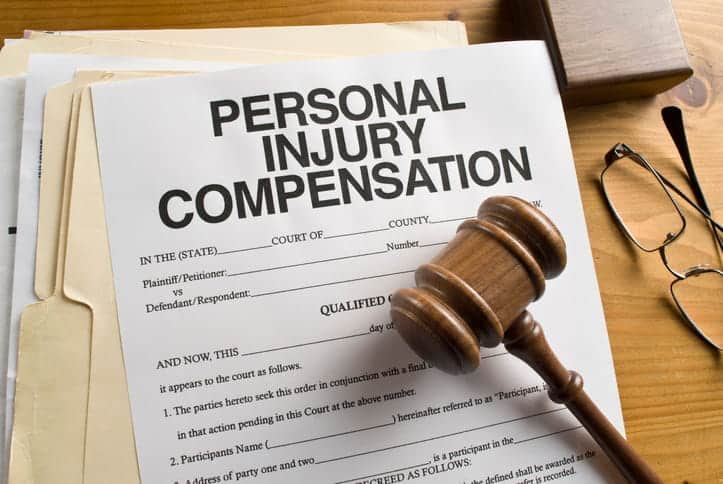What Are Special Damages?

Under Colorado law, victims who sustain an injury because of someone else’s negligence have the right to seek compensation for their losses. The injury a victim suffers and how they were injured will determine the type of compensation they can recover.
This nuanced and often complicated compensation standard allows personal injury victims to have comprehensive legal support when they’re seeking to hold responsible parties accountable for their actions.
One type of compensation victims will often be able to seek is special damages. Let’s take a closer look at what special damages are, how they differ from other damages, and what you need to know about special damages law in Colorado.
Contact our wrongful death lawyers today to schedule a free case consultation.
What are damages?
In Colorado civil cases, damages describe the remedy that a victim seeks when they file a lawsuit against a negligent party. Typically, damage awards are in the form of a monetary award.
Monetary damages can serve two purposes. They compensate a victim for their injury following an accident or punish a defendant for negligent behavior.
Compensatory damages
The main types of damages received in a personal injury or wrongful death lawsuit are compensatory damages. These are designed to compensate a victim for their losses and are divided into economic or non-economic damages.
Punitive damages
Punitive damages are designed to punish the responsible party for their actions that caused an injury or other losses. Punitive damages are typically reserved for egregious acts and are designed to reprimand a negligent party to keep them from repeating the behavior in the future.
Punitive damages can also send the message to the public that such behaviors will not be tolerated. For example, if a construction company is required to pay punitive damages because they failed to adhere to OSHA safety standards, other construction companies may be encouraged to take a closer look at their safety operations.
Special damages vs. general damages
Two types of damages that routinely come up are special damages and general damages. Special damages, also known as economic damages, are designed to compensate a victim for losses they’ve incurred because of an injury. For the most part, special damages are relatively easy to calculate and include losses such as:
- Emergency medical bills
- Hospital bills
- Cost of doctor visits and follow-up appointments
- Cost of medical equipment and prescription medication
- Rehabilitation or physical therapy
- Loss of income because of the inability to work
- Out-of-pocket expenses
- Property damage
It’s important to note that Colorado does not have a cap on economic damages, except for the case of medical malpractice lawsuits where damages exceed $1,000,000.
General damages, on the other hand, are not as easy to calculate as special damages. General damages are also known as non-economic damages and cover intangible losses in the form of anxiety, depression, PTSD, inability to enjoy life or interact with others the way they did before the injury, and other intangible forms of pain and suffering.
Victims can recover compensation for a wide range of incalculable losses:
- Physical suffering because of the pain associated with the injury
- Emotional and psychological pain
- Loss of enjoyment of life
- Loss of companionship or consortium for a spouse, family members, and other loved ones
It’s important to note that Colorado does place a cap on non-economic damages; however, it depends on the type of injury sustained and the type of personal injury claim filed.
How to calculate special damages
Special damages are relatively easy to calculate because of their tangible nature. An experienced personal injury attorney will be able to calculate special damages with evidence including invoices, pay stubs, bills, and other documentation that shows monetary losses related to the incident.
One of the more difficult aspects of calculating special damages results when a victim is expected to need continued care or will suffer continuous losses. This typically results when a victim suffers a permanent injury.
Calculating future loss of income
Calculating future losses such as loss of earning capacity is often less cumbersome to calculate. Earning capacity can be calculated based on a victim’s current earning ability.
Calculating future medical bills
One of the most complicated aspects when calculating special damages is determining the cost of future medical bills and medical care associated with the injury. An experienced personal injury attorney will often turn to medical experts to help establish future medical losses.
With thorough investigations and expert testimony, an experienced personal injury attorney can help victims recover future losses associated with medical bills and medical care.
Understanding special damages law in Colorado
Special damages can apply to a variety of civil claims, including personal injury, wrongful death, and medical malpractice lawsuits.
Colorado wrongful death damages are outlined in C.R.S. § 13-21-203 and C.R.S. 13-21-102. For claims that involve medical malpractice, C.R.S. § 13-64-302 details damages and the current caps.
Speak with the experts at Bachus & Schanker

Kyle Bachus understands the complexities of personal injury cases and the significant impact they can have on your life. You can learn more from his book, Unthinkable.
If you’ve suffered an injury in Colorado, navigating the legal intricacies of special damages can be overwhelming. Our experienced team of attorneys is dedicated to guiding you through the details of Colorado law to ensure you have a full understanding of your legal rights and options.
Our dedicated team of attorneys will meticulously evaluate the unique aspects of your case to help you recover the compensation you deserve. Your well-being is our top priority, and we are committed to fighting for your rights.
Contact our team today to schedule a confidential consultation about your case.
Sources:
Chapter 5. General Instructions relating to damages. (2023).
CRS 13-64-302.Owen, D. (2023).
A Punitive Damages Overview: Functions, Problems and Reform.



